11th November is the Independence Day in Poland
On 11th November 1918, when World War I ended and the Armistice of Compiègne was signed, Poland regained independence after 123 years under control of three powerful empires: German, Austro-Hungarian and Russian. On this day, Marshal Józef Piłsudski assumed control of Poland.
As 11th November is a national holiday and non-working day, students of class 7b worked on this topic two days earlier, during their form time. Now they're inviting project partners from Slovakia and Lithuania to cooperate on the topic of independence, which means freedom.
We started with answering the basic question:
Do you want to share your opinion on independence, too?
ANSWERS GIVEN BETWEEN 9 AND 15 NOVEMBER:
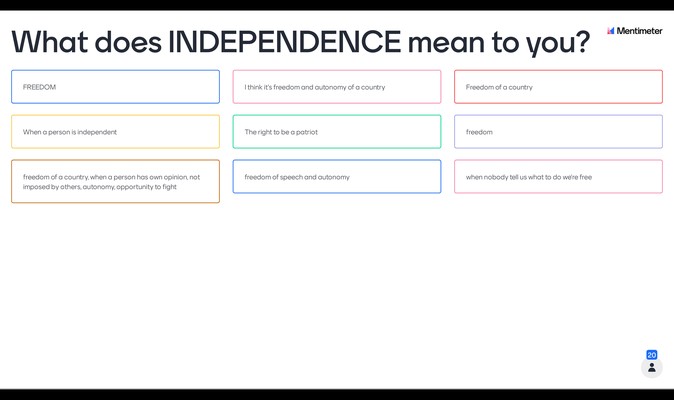
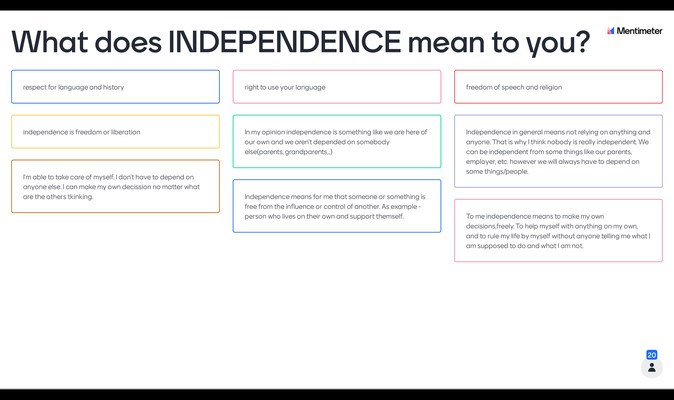
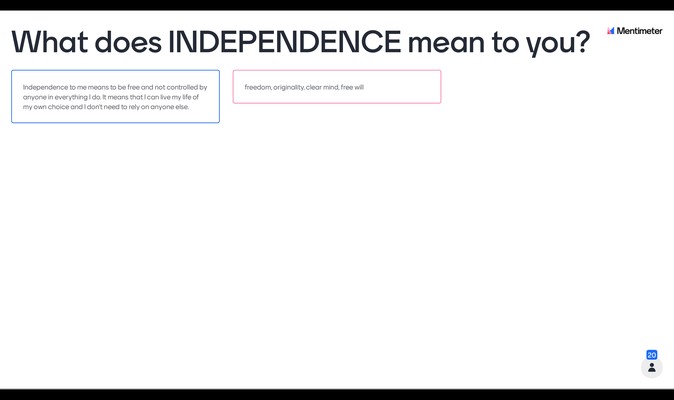
Independence.pdf
ANSWERS GIVEN BETWEEN 16 AND 20 NOVEMBER:
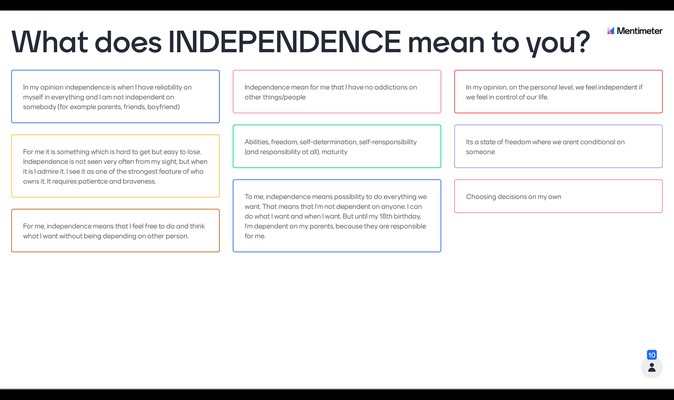
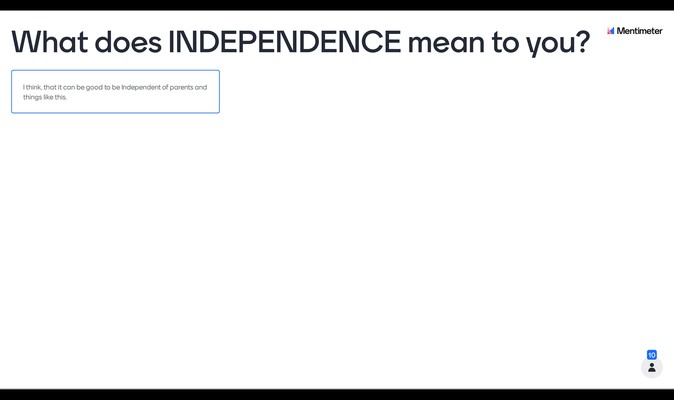
Independence.pdf
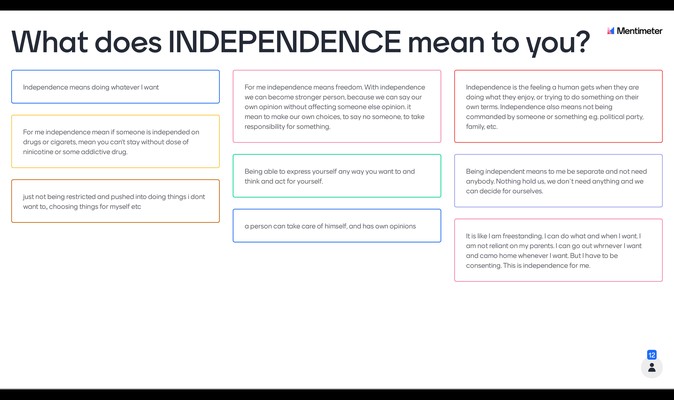
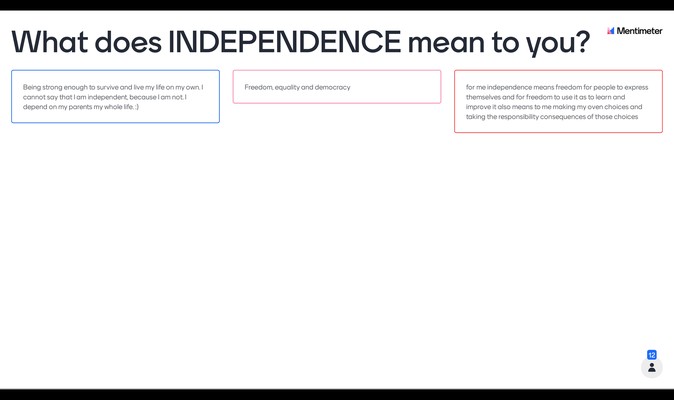
Independence(1).pdf
You can also write it in the AnswerGarden board below (remember to use not more than 40 letters):
After that, we learnt about how other countries celebrate their Independence Day(s).
Here is what we've learnt:
DO ALL THE COUNTRIES CELEBRATE INDEPENDENCE DAY?
There are some countries, like Germany, Great Britain, Spain or France, that don't celebrate Independence Day, because they've always been independent and have never fight for being free
Our neighbours (except for Germany) celebrate their independence in different ways:
- Den obnovy samostatného českého státu in the Czech Republic (28th October)
The Czechs celebrate getting free (as Czechoslovakia) from annexation of Austro-Hungary in 1918.
- Výročie deklarácie o zvrchovanosti SR in Slovakia (17th July)
This day commemorates the announcement of Declaration of Independence in 1992. Slovakia became independent in 1 January 1993, after being separated from the Czech Republic.
- День незалежності України in Ukraine (24th August)
Ukraine became independent from USSR in 1991.
- Дзень Незалежнасці Рэспублікі Беларусь in Belarus (3rd July)
It commemorates the day when Minsk became independent from German occupation in 1944.
- Lietuvos Valstybės atkūrimo diena (16th February) and Lietuvos Nepriklausomybės atkūrimo diena (11th March) in Lithuania
Lithuanian peope celebrate the day of regaining independence in 1918 and the day of becoming independent from USSR.
The most famous Independence Day is celebrated, of course, in the USA. On 4th July 1776 13 colonies became independent from the British Empire. Nowadays, American Independence Day is famous of colorful parades, fireworks and... barbecue.
But... Does INDEPENDENCE always equal FREEDOM?
We live in independent coutries - it means we should be free people, we should feel that we are free. Do you think you're a free person?
ANSWERS GIVEN BETWEEN 9 AND 15 NOVEMBER:
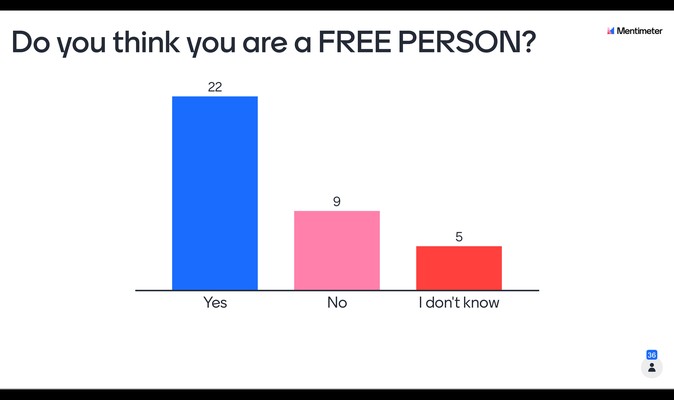
ANSWERS GIVEN BETWEEN 16 AND 20 NOVEMBER:
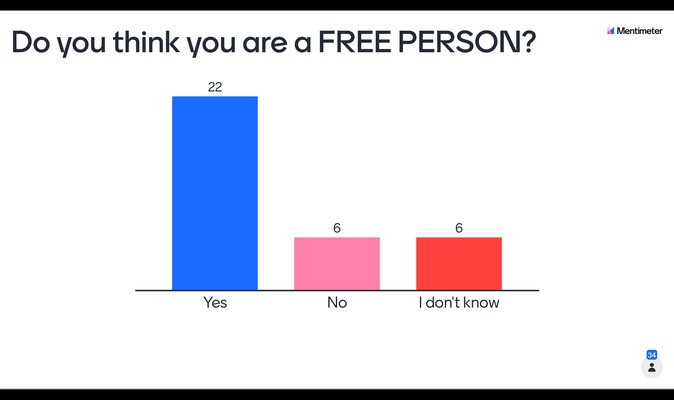
You can also give your opinion (YES, NO or I DON'T KNOW) on the AnswerGarden board below!
Then, students were asked to motivate their answers. Here is what they said:
I FEEL FREE, BECAUSE:
- I can do what I want and nobody can stop me
- I have my own opinion
- nobody limits me
- I can travel abroad
- I have access to education
I DON'T FEEL FREE, BECAUSE:
- my mum tells me what to do
- of the law
- I'm not an adult and others think they can tell me what to do
- we have to pay taxes
- I'm a woman and our government doesn't care about women (and about homosexuals)
What about you? Why do you feel (or not) free? If you want to, share your opinion on the TwinBoard below this text (at the end of the page).
To sum up the lesson, we discussed freedom as a chance and as a danger. What did we discover?
1. Freedom is important, but sometimes it's overused, even by people who rule the countries.
2. We feel great when nobody limits us, but life without any rules can be dangerous, especially when we have problems with stating our own limits.
3. Freedom is a chance to live the way we want to, but we should remember nothing comes for free - even in independent country we have to fight for some things, for example for keeping our rights.
4. Teenagers often have problems with accepting reality - they're fighting, argueing, rebelling and this is all caused by the dact they're searching for their identity and getting ready to become adults. It doesn't mean adults should avoid difficult topics while talking with teenagers, because young people's opinion is important and should be taken into account. When we know that people around really care about what we think, we feel safe and become more eager to look for compromise (this is valid for all the people, not only for teenagers).
CONCLUSIONS?
INDEPENDENCE = FREEDOM
FREEDOM = AUTONOMY
AUTONOMY = EQUALITY
EQUALITY = RESPECT
SO...
INDEPENDENCE = RESPECT
We can be fully independent only if we respect independence of other people.